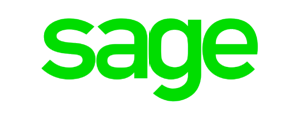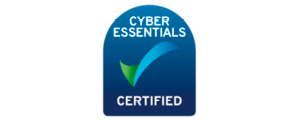Is a BACS Payment the Same as a Direct Debit? Unveiling the Differences
In the world of electronic financial transactions, various terms and concepts can sometimes appear confusing or interchangeable, leading to misunderstandings and potential financial mishaps. One such example is the distinction between a BACS payment and a Direct Debit. While both are methods of transferring money electronically, they serve different purposes and operate under distinct mechanisms. In this article, we aim to unravel the differences between a BACS payment and a Direct Debit, helping you gain a clearer understanding of these crucial financial tools.
BACS Payment: A Brief Overview
BACS, which stands for “Bankers’ Automated Clearing Services,” is a system that facilitates electronic fund transfers between bank accounts in the United Kingdom. It is primarily used for making payments from one bank account to another, whether between individuals, businesses, or other entities. BACS payments are commonly utilised for various purposes, such as paying salaries, supplier invoices, and bills.
The BACS process involves several stages. First, the payer’s bank initiates the payment request, transmitting it to the BACS system. The system then sorts and processes the payment requests, with funds being credited to the payee’s account within three working days. BACS payments are known for their reliability and cost-effectiveness, making them a preferred choice for large-scale transactions or regular payments.
Direct Debit: A Closer Look
On the other hand, a Direct Debit is a specific type of payment instruction used to collect funds from a payer’s bank account on a regular basis. This method is often employed for recurring payments, such as monthly bills for utilities, subscriptions, and membership fees. Unlike a BACS payment, where funds are initiated by the payer, a Direct Debit is initiated by the payee with the payer’s authorisation.
When a payer agrees to a Direct Debit arrangement, they grant the payee (or the organisation receiving payment) permission to withdraw funds from their bank account on specified dates. This agreement is typically set up using a Direct Debit mandate, which is a formal authorisation provided by the payer. The payee can then collect funds automatically, eliminating the need for manual payments and reducing the risk of missed payments.
Key Differences: BACS Payment vs. Direct Debit
- Initiation of Transaction: In a BACS payment, the transaction is initiated by the payer, who sends funds to the payee’s account. In contrast, a Direct Debit is initiated by the payee, who collects funds from the payer’s account with the payer’s authorisation.
- Transaction Type: BACS payments are used for one-time transfers or irregular payments. Direct Debits, however, are designed for recurring payments that take place at regular intervals.
- Authorisation: While BACS payments require both parties to coordinate the transaction, Direct Debits involve the payer granting explicit authorisation to the payee to deduct funds from their account.
- Frequency: BACS payments can occur at any time and are not limited to a specific schedule. Direct Debits follow a predetermined schedule and occur regularly, such as monthly or quarterly.
- Use Cases: BACS payments are versatile and can be used for various types of transfers, including one-off payments. Direct Debits are ideal for recurring payments like bills, subscriptions, and memberships.
In Conclusion
In the realm of electronic payments, it’s crucial to understand the distinctions between different methods to ensure accurate and timely transactions. While both BACS payments and Direct Debits involve the electronic movement of funds, their purposes, initiation processes, and mechanisms are distinct. BACS payments are suitable for various payment scenarios, while Direct Debits streamline recurring payments by allowing authorised withdrawals from the payer’s account.
By understanding the differences between these two methods, individuals and businesses can make informed financial decisions and select the appropriate payment method based on their specific needs. Whether you’re sending a one-time payment or setting up automatic bill payments, having a clear understanding of BACS payments and Direct Debits empowers you to manage your finances effectively in the digital age.
Need Help with Your Payments?
At FastPay, we help a multitude of businesses and organisations take care of their payments. From our Direct Debit Managed service and Powerful Integrations to the FastPay Direct Debit Bureau, we’re committed to providing a payment solution tailored to our client’s needs.
Start a conversation with our friendly team today by calling 0161 737 5290 or get in touch online.












